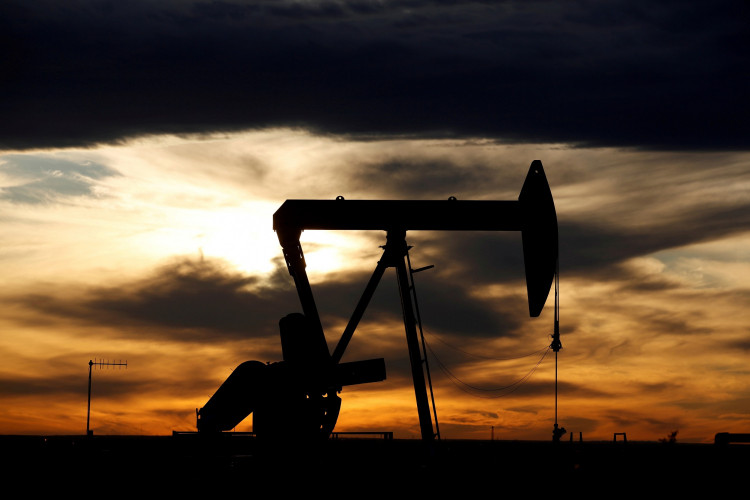In the past two years, Goldman Sachs has been Wall Street's most bullish advocate for the energy market. They accurately predicted the epic surge in oil prices in 2022. However, this year's plummet in oil prices caught Goldman off guard, leading to the departure of their star analyst and chief commodity strategist, Jeff Currie.
But as oil prices rebounded by 30% from their mid-year lows, JPMorgan has stepped up, taking the bullish baton from Goldman Sachs.
JPMorgan's energy analyst, Christyan Malek, stated in a recent report that their "Super Cycle" series is making a strong comeback. JPMorgan had been bearish on oil prices from 2013 to 2019, but introduced their "Super Cycle" series in 2020. Since the start of this year, the banking giant has been in a wait-and-see mode.
Considering the dwindling investments in the oil industry and the fact that green energy alone can't meet global energy demands, Malek anticipates that oil prices could surge to $150 per barrel in the short to medium term, a 62.6% increase from the current Brent crude price. He predicts a global oil shortfall of 7.1 million barrels per day by 2030.
Malek shared that they strategically shorted last December, took profits in April, and have remained neutral since then. Despite the significant rise in oil prices since June, energy stocks have lagged behind.
He remains optimistic about the global energy market, reiterating a long-term target oil price of $80 per barrel and suggesting that prices could potentially reach $150 per barrel in the short to medium term, settling at $100 per barrel in the long run.
Malek pointed out several factors driving the rise in oil prices:
- The prospect of longer-term high interest rates slowing capital inflow to new supplies.
- Rising equity costs pushing the Brent crude break-even point above $75 per barrel.
- Institutional and policy-driven pressures accelerating the transition to green energy and fears of peak demand.
In essence, the outlook for energy is under the premise of a longer-term high-interest rate environment, as the industry struggles to justify large-scale investments post-2030.
JPMorgan forecasts a supply-demand gap in the oil market of 1.1 million barrels per day by 2025, widening to 7.1 million barrels per day by 2030. This reflects both an optimistic demand outlook and a pessimistic supply forecast.
Such a staggering daily shortfall would necessitate not just a rise in oil prices, but a significant one.
Is There More Upside for Global Energy Stocks?
The report further highlighted that the global oil market has shifted from risk "discount" (demand) to risk premium (lower overcapacity/rising marginal costs), meaning the risk has moved from the demand side to the supply side.
Their analysis indicates that the oil market's supply-demand gap can only be met by Saudi Arabia's spare capacity, allowing it to meet a record 55% of the marginal demand growth between 2025 and 2030, compared to an average of 18% from 2005 to 2018.
They estimate that an increase in OPEC production and the depletion of its spare capacity could bring about a risk premium of around $20 per barrel, with their long-term oil price expectation being $80 per barrel.
Furthermore, company cash returns not only support a long-term price of $80 per barrel but also indicate that the oil price required for major energy companies to cover capital expenditures, dividends, debt, and cash returns continues to rise.
Malek upgraded the rating for global energy stocks to "overweight" for several reasons:
- A more positive macro outlook.
- A focus on oil over natural gas due to structural benefits and lower volatility from OPEC's slowdown.
- An estimated free cash flow yield of about 12% by 2024, rising to around 15% if oil prices reach $100 per barrel.
- An upside risk to earnings per share.
- Cash return rates exceeding 30%, supporting attractive valuations relative to the market.
Buckle Up: Multiple Energy Crises Expected in the Next Decade
While optimistic about oil prices, Malek issued a significant signal to fundamental investors: "Buckle up."
He believes that while the industry is in a structural bull market and oil prices should normalize higher, oil prices and energy stocks are expected to trade within a broader price range. Concerns around ESG and peak demand might exacerbate oil price volatility.
He suggests establishing directional long positions in the integrated energy market during absolute price corrections over the next few years, especially in stocks with a high oil beta. They acknowledge the downside risks associated with global recessions. However, in such scenarios, the supply-demand fundamentals remain tight, and the energy sector should outperform the broader market.
Importantly, in the event of a demand shock, they believe OPEC can further cut production to help stabilize oil prices. Additionally, given the risks of "longer-term high interest rates" to stock valuations, they believe the energy sector typically outperforms the broader market during overall market downturns, serving as a macro hedge against inflation, interest rates, and geopolitical risks.
Lastly, they believe the global economy can withstand triple-digit nominal oil prices, as real prices remain below the peaks of 2008 and 2011 and below the "demand destruction zone."
Regarding the recurring concerns about peak oil demand due to the rise of electric vehicles, JPMorgan is dismissive:
They believe that within their investment horizon (up to 2030), oil demand will not peak, as a significant amount of fuel is needed to offset the 11EJ energy deficit mentioned in their global energy outlook.
Due to supply chain, infrastructure, and critical material bottlenecks, clean energy systems won't mature enough over the next decade. Imperfect capture technologies also can't deliver enough "clean" electricity to end-users. This places greater pressure on traditional fuels to bridge the gap and meet the continuously growing demand driven by emerging markets.
Malek warned that if there isn't an increase in capital expenditure for oil and natural gas, the world still faces the risk of energy shortages and significant commodity price hikes. This could lead to multiple oil-led energy crises in the next decade, potentially far more severe than last year's natural gas crisis in Europe.
Furthermore, this would help OPEC firmly control the direction of the global oil market, capturing a larger share in demand growth while helping to mitigate sharp oil price fluctuations.






